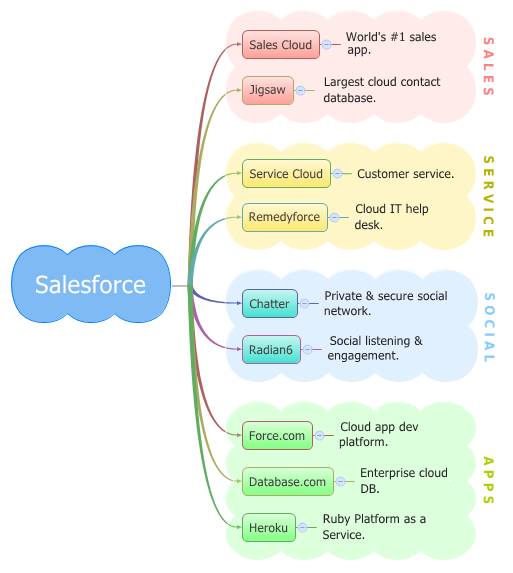
Do You Want to Improve Your Website Ranking? Seven Useful Tactics to Implement
Are you planning your content marketing strategy? If yes, SEO is the primary objective. Expert marketers work in a way that’s something like this –they have an SEO plan, a list of premium keywords, they start to blog actively and have the website optimized. There’s also a plan for on and off page SEO. The majority of marketers don’t find this to be a problem.
Time, however, is a concern. Also, the weekly tracking often makes you guess, cross your fingers, pray and also consult informative blogs to learn about the advanced SEO trends and tricks. Maximizing leads and high-end website visits are essential. Hence, your content marketing plan requires some help. Also, if you get to see that your competitors and other market players are ranking above you, then there’s work that you need to do.
One thing that you should also consider is going through an audit – you can even use a free SEO audit tool. That will help to keep you on the right track during this process.
So, do you want to improve your website ranking and outshine your competitors? If yes, you can refer to the seven useful SEO tips discussed below.
1. Carry out a competitor analysis

The strongest SEO tactics to increase your website ranks is conducting extensive competitor analysis and research. The first step is to recognize the principal competitors, either through geography, industry, keywords or any other essential aspects. An in-depth analysis will enable you to discern areas where your competitor is doing better than you. It will help you know your weakness. Any competitor analysis that you conduct should include the following activities:
- Keyword analysis
- Content analysis
- Link building analysis
Additionally, tools such as Ahrefs, SpyFu, and SEMrush are useful in website optimization.
2. Evaluate your back-links
Back-links are an essential aspect of a sound SEO strategy. But not every back-link is equally created. Few links will naturally perform better than the rest. Hence, managing performance is essential. It is useful in narrowing down on many other kinds of back-links that are important. Alternatively, you can also understand the websites that are essential for generating high-end traffic.
Are there a few links that are not adding value to the search ranks? If yes, then it is essential to do away with these links. You can use tools such as Aherfs and Majestic that are useful in conducting an in-depth back-link analysis for the website. Want to get professional assistance on this? You can reach out to names like LA SEO Kotton Grammer if you are in Los Angeles and others, to have access to expert guidance.
3. Mobile optimization
The mobile search market is expanding rapidly. Also, marketers have been anticipating for long that mobile might become more impactful than desktops. Back in 2017, mobile took the lead. Today, it records for over a half of global web traffic.
There have been several criterions for mobile development. It is not just essential for websites to look decent. Sites also need to load quickly; else the online visitors will bounce off to other websites. Opting for a stripped-down version of HTML, Google asserts that the AMP optimized web pages generally load 85% faster. Hence, if your site is not optimized for mobile, it’s crucial that you do it today.
4. Make use of a safe HTTP

When you shift to Hypertext Transfer Protocol Secure (HTTPS) for encryption, you automatically witness many advantages. Some of them are listed below:
- Privacy and security: By securing communications between servers and users, the scopes for third party damage or interference reduce significantly. The outcome is high trust from both web browsers and users. And you get to see the warning signs when you browse through the non-HTTPS sites.
- Enhanced rankings: With the growing trustworthiness, the majority of websites that have shifted to HTTPS will witness an increase in their search ranks. You can also expect to see a vast number of traffic and referrals gradually. Google recommends secure sites more than the others.
According to statistic, after mid-2017 about 31% of web domain has shifted to HTTPS. And this number has been increasing ever since. It is because secure communication protocols are becoming significant around the globe. Right after you shift to HTTPS, there might be a dip in the search result performance and site rank. It is because of the modifications you make to the URL base. It is for a short span of time, and you’ll witness increased website ranks soon.
5. Optimize the web page speed
The internet speed has increased. Hence, there are high expectations concerning the website performance from all the mainstream users. Based on a study by Adobe, about 40% of the users are going to move away from a website if it takes excess time to load.
Want to boost the website loading time? There’s a lot you can do for the same for example choosing the fastest web hosting provider out there so that your server-side related loading speeds are top notch. And the majority of this is easy to implement. For instance, resort to high-compression for your pictures to minimize the load time. You might also want to make use of a Content Delivery Network (CDN), which enables your global users to have access to your web content.
6. Voice search optimization
As you attempt to optimize mobile devices, incorporating a better voice search functionality is a smart call. The primary objective of the same is to concentrate on the voice search that is the source for “Featured Snippet” as Siri, Google Assistant, and Alexa that will read out data from the sources.
7. Making use of structured data

The website crawlers have gotten more advanced and gained expertise over the years. However, what is apparent to a human user is entirely vague to a machine. The outcome is, occasionally, the site crawlers might make mistakes or overlook a data when your website is indexed. The solution, therefore, is to make use of structured data.
Making use of structured data is formatting your site code to an identical layout. When the search engine crawlers index your website, they will be able to gather precious information. It is because it got designed in the expected format.
The online market space is getting flooded with new companies and brands every day. Every company wants their brand to outshine the other market players. Everyone wants to experience increased website ranks. And to be able to witness this consistently needs serious work. You can opt-in for the above-discussed SEO tactics that are tried and tested and are meant to enhance the website rankings.





















 Are you facing huge competition in the market? Is it difficult to retain your existing customers and maintain their loyalty to your brand? That’s where you should use retention videos. Retention videos are indeed essential to engage your existing customers, connect with them and maintain their interest in your business. You can use a platform such as TikTok to create concise and compelling content for your followers, that will capture and hold the viewers attention. It’s worth taking a look at this
Are you facing huge competition in the market? Is it difficult to retain your existing customers and maintain their loyalty to your brand? That’s where you should use retention videos. Retention videos are indeed essential to engage your existing customers, connect with them and maintain their interest in your business. You can use a platform such as TikTok to create concise and compelling content for your followers, that will capture and hold the viewers attention. It’s worth taking a look at this 








